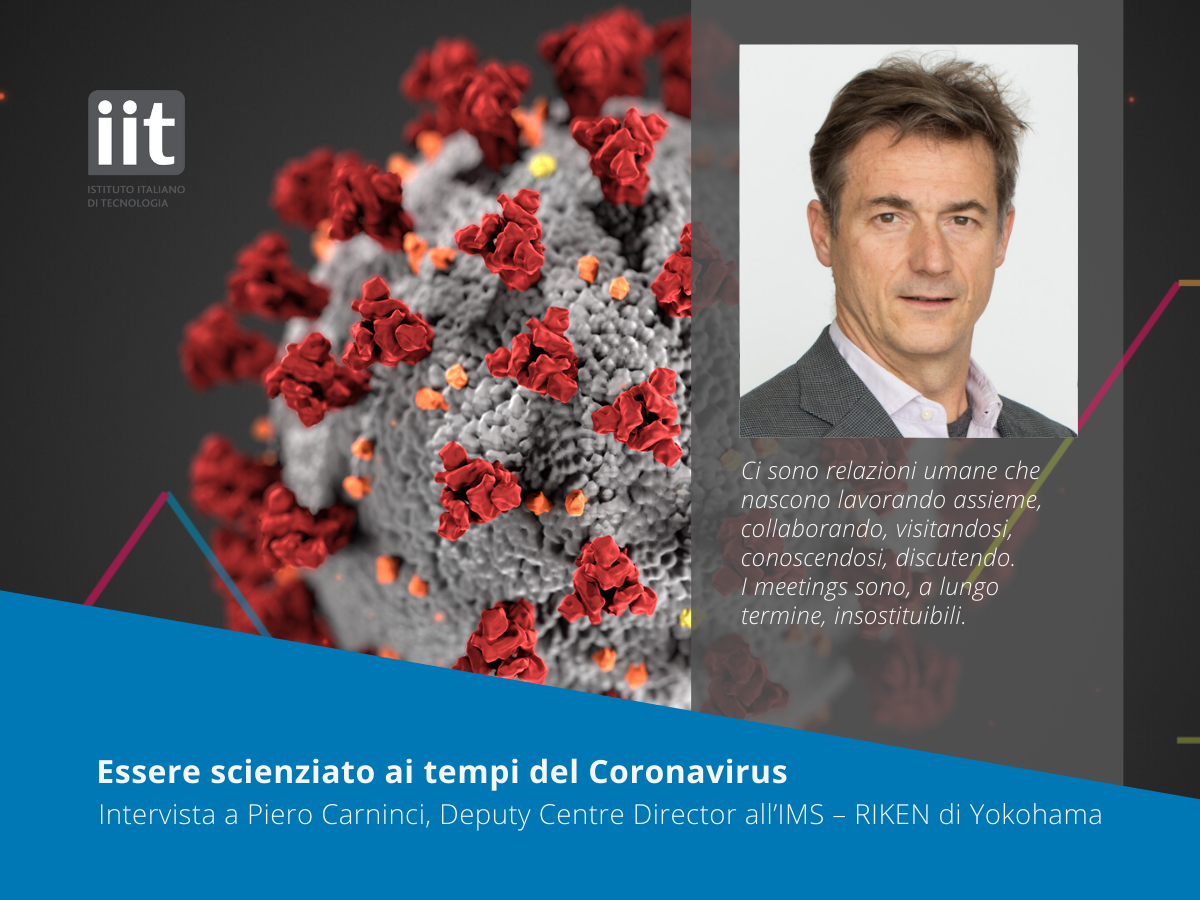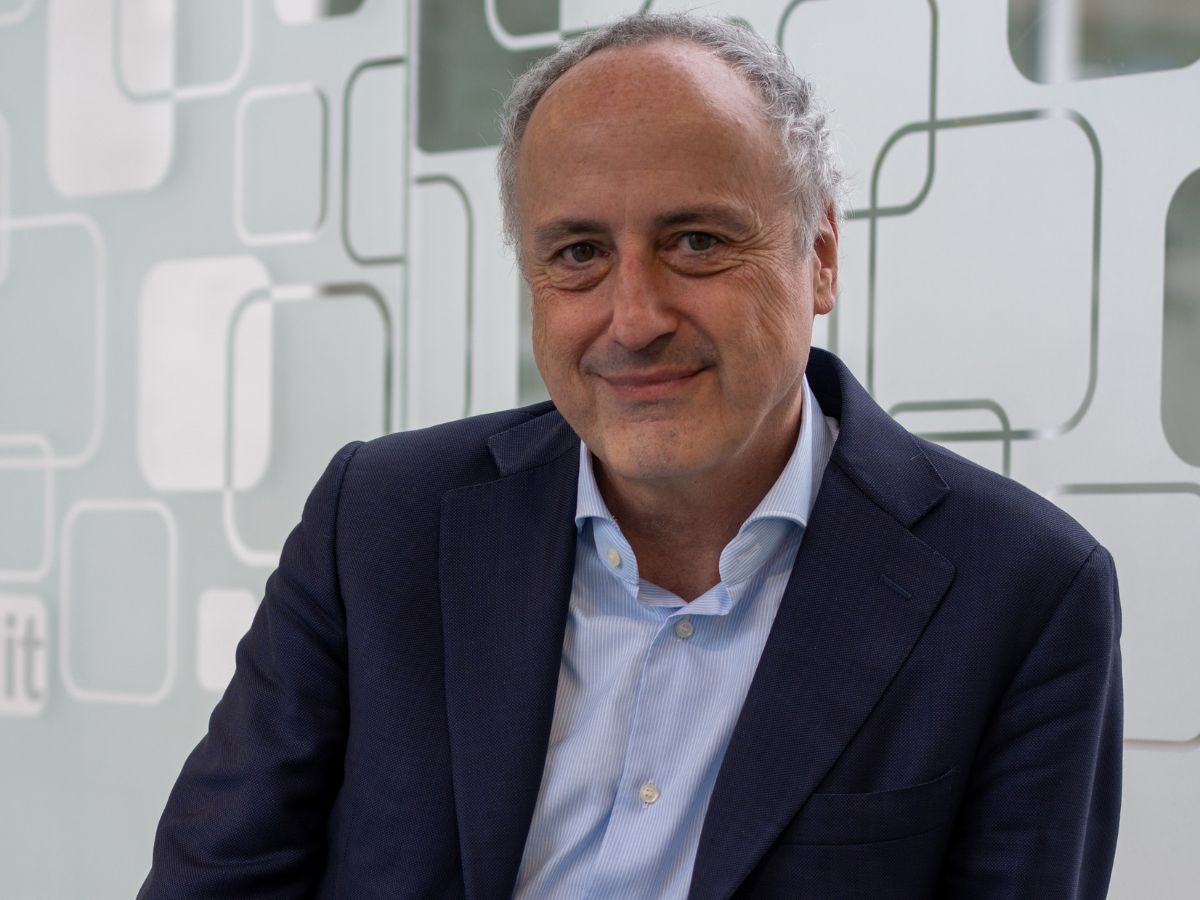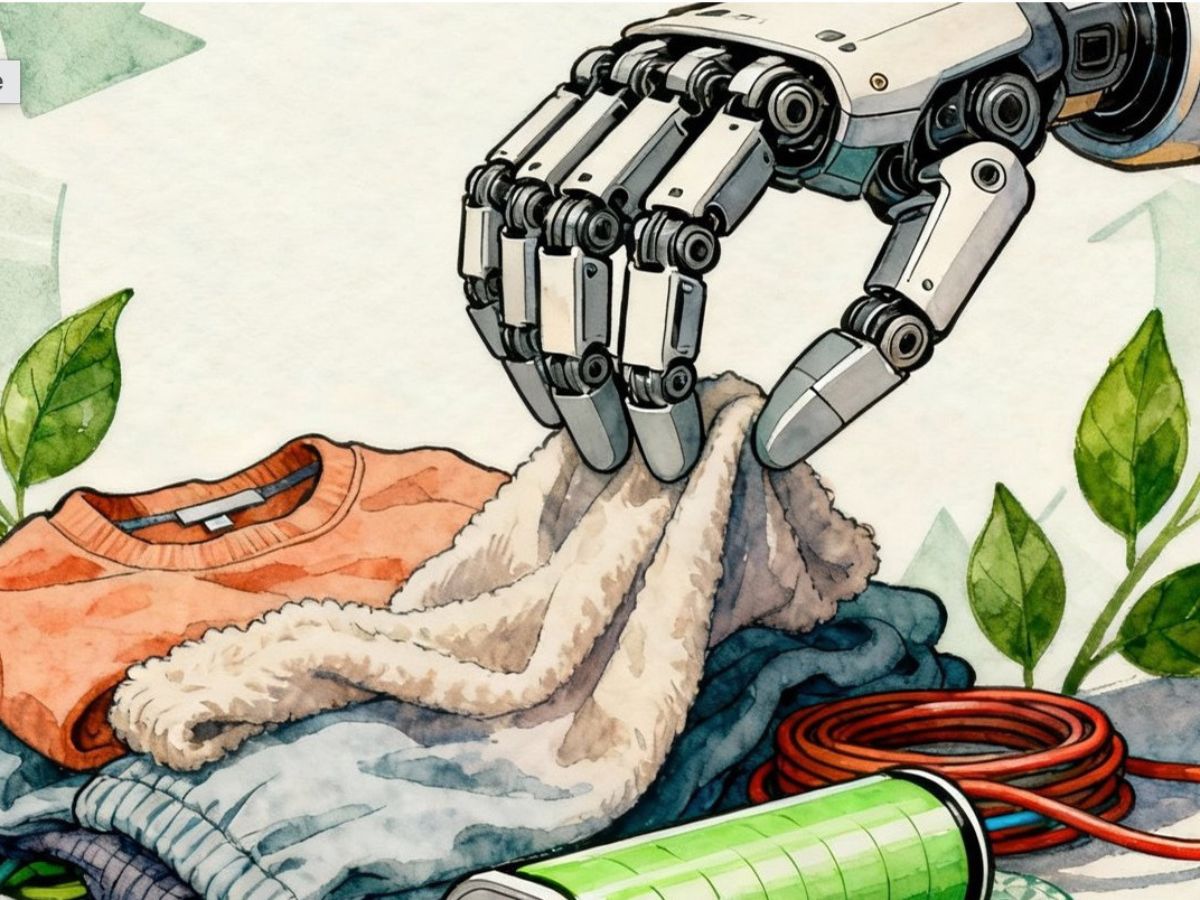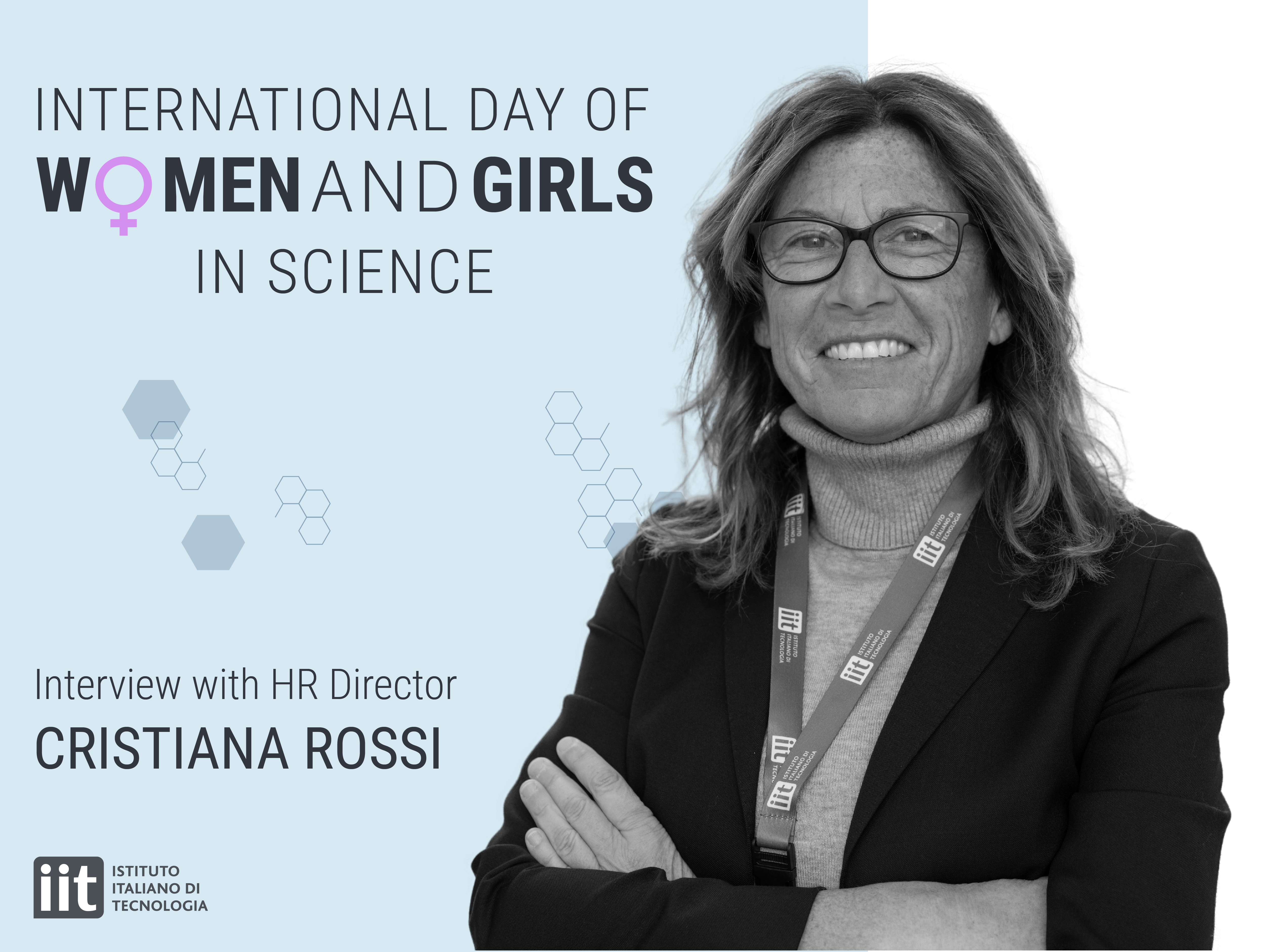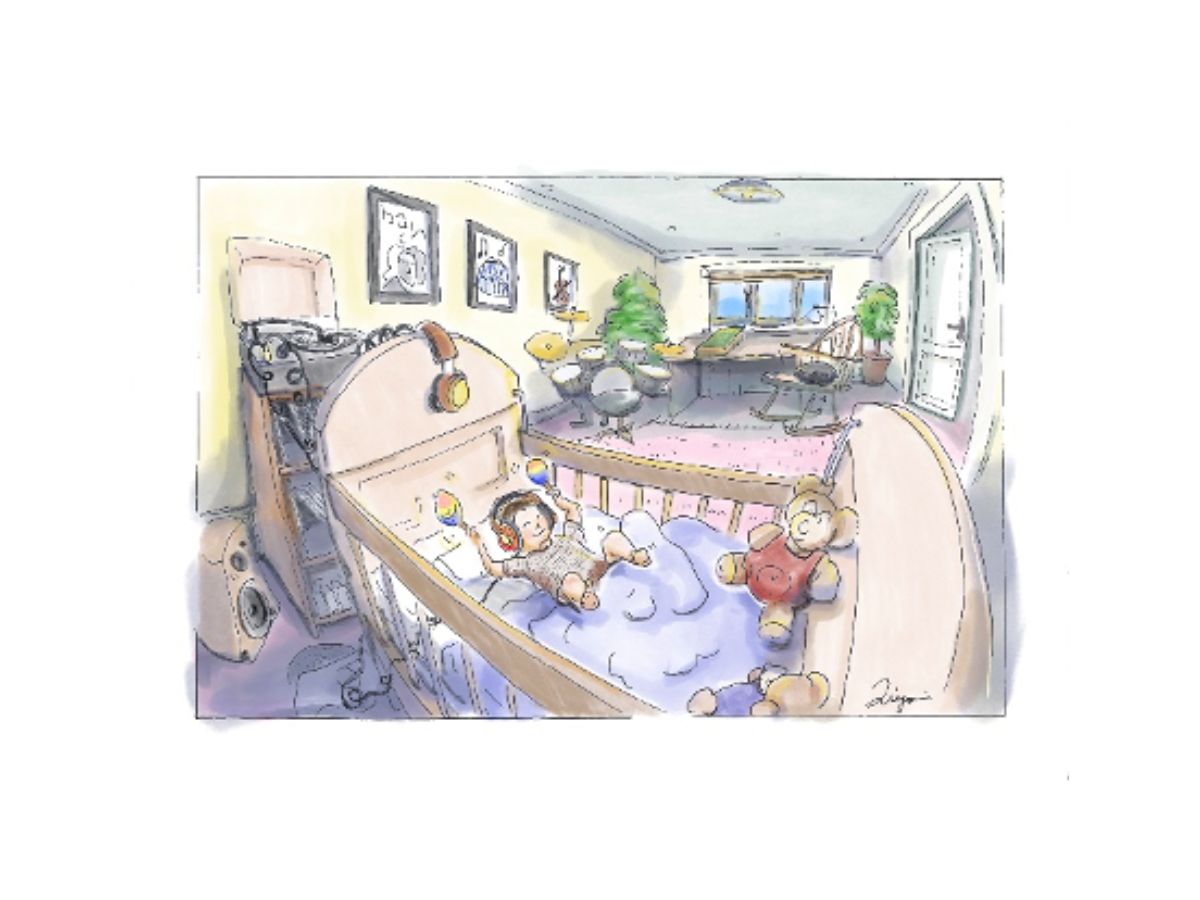Interview with Piero Carninci, Deputy Centre Director at IMS – RIKEN in Yokohama, Japan
Piero Carninci is an internationally-renowned geneticist who has lived in Japan for almost 25 years. He works as a Team Leader in the “Laboratory for Transcriptoem Technology” and is also the Deputy Centre Director at IMS – RIKEN in Yokohama, Japan. Recently, he was asked to set up the Human Technopole’s genomic centre, the “bridge between Italy and Japan” as he likes to define it.
His passions do not only include genomics and he is a very busy man in sport: gym, running and football. A life dedicated to maintaining “a healthy mind in a healthy body“.
Hi Piero, how are you first of all and how are you doing in Japan?
Thanks, Valentina, I’m very pleased to hear from you. I’m well. I’m doing fine in Japan. Japan was my “America”. I arrived in Tsukuba 25 years ago and spent the past 12 years in Yokohama, a city with the sea, the port and the hills. It reminds me of Trieste for liveability because it makes you feel at ease, but also for restaurants, bars, friends in places of entertainment which close well after midnight, stadium friends and friends in the football team. For the curiosity of the people you meet, who respect you and make you feel at ease, and for so many reasons because Japan is full of beautiful places around the sea, the mountains and nature. Japan is doing fine these weeks, apart from the COVID-19 crisis, that is, but it does not seem to have affected us much (yet). I’ve been a resident now for many years and I also allow myself to criticise certain aspects of it, something that a guest shouldn’t do.
A researcher’s profession is made up of meetings, travelling around the country you work and around the world. You could say that, it is one of the jobs where travel is a component of the job itself. How many times a year were you travelling for work?
Usually 10-12 intercontinental flights per year. Sometimes even more. Which means flying one week to Europe, having jet lag problems, returning, having new jet lag problems and, therefore, often living half your time struggling with the wrong time. Or striving to. Or studying how this accursed jet lag could work!
Did you have to cancel any flights these past weeks or coming weeks? Which trips were they? (meetings for projects, meetings for papers, international conferences?)
I was due to go to Washington on the 30 and 31 March for the Human Cell Atlas meeting together with the NIH, but we all had a teleconference because of the virus. Strange to be stuck to your computer at home till 5 a.m., seeing scientists and friends at home. We’re obviously disadvantaged with a night meeting. The Human Genome Meeting – HGM 2020 (which should have taken place in Perth, Australia on 6-9 April) and The Biology of the Genomes (in New York early May) were also transferred online, while a meeting in Milan and another one in California (all scheduled for the month of May) have been cancelled. On the other hand, the Euroscience Open Forum – ESOF2020 of Trieste was postponed. We have to wait and see whether the list will get longer.
I noticed that last month you returned from Lombardy which was already in full COVID-19 crisis. What did your Institute do to protect you and your colleagues on your return?
They did not immediately activate official safety measures so I self-isolated for 14 days and asked for teleworking. I wrote a report on my movements for the personnel office. After a few days, the request to stay home and not go to the office also arrived from the Institute… but here, bureaucracy is only activated after several consents, and the rules must be issued or authorised by the Chairman. Fast action is therefore impossible. Our laboratory, with other Industry Experts, created a small set of rules to be complied with.
When do you think you will go back to travelling again?
It’s too soon to say. Perhaps we should have a “passport of certified recovered people”: whoever is positive to antibodies may get out and travel and go back to their own country, for example. I hope that it will be possible to travel as from September, but this depends on how the crisis evolves. I’m planning my summer holidays here in Japan, for instance. Probably by the sea, perhaps with the bicycle to do some sightseeing. I had a fantastic trip a few weeks ago over the weekend, by bicycle from Honshu to Shikoku, hopping from island to island on 8 long/very long bridges, in remote spots.
What has changed in the work of a scientist during this global health crisis and how can other jobs that also require travel improve from this point of view?
We’re learning to communicate with Skype, Zoom, Teams and other platforms, learning that it’s possible to also work and do research from home. For some, it’s the right time to reflect, to read and to write. To have even less meetings that are non-essential.But it’s not okay for everyone. Those who communicate well via video-conferencing, email and telephone survive better. Those who need to be physically present for work, will not work so well. Some need to have human contact, and others don’t work well from home. A colleague, for example, has tried (and it seems to work) a video conference “after-hours meeting”, with everybody chatting over a beer on Zoom. Obviously, certain experiments can’t take place at the moment. This remains a big problem for post-docs, students, those who have deadlines for PhDs, for new posts, etc. On the other hand, little has changed for computational scientists and they can work anywhere. The productivity of certain laboratories may suffer, others no. It depends.
Do you think that this period may change relationships, even within the scientific community? Do you expect to travel less and to attend less conferences around the world or do you think that face-to-face networking is still a fundamental tool for your profession and one which you have to return to once the crisis is over?
There are human relationships that are built from working together, collaborating, visiting each other, getting to know one another and discussing. We work and we do more to work with those we like, with those who fill us with enthusiasm. Those with whom you can drink a beer or a glass of wine at business meeting dinners. These things can’t vanish; we can’t get to know one another without sitting at a table together, and without often staying late to discuss science, science policy and just policy, to then go back to just discussing science. Meetings are irreplaceable in the long-term.
Italy has prevented motoring activities further than 200 m from home. Will you tell us how your daily routine has changed as a person who is very much into team and individual sports?
I guess it’s dramatic. I heard that somebody did a 6-hour marathon on a 9-metre balcony. I don’t know if it’s true…
You can still move around here (but I so wish that government pushes for more tests!!!), but they stopped organised sports. Which doesn’t make sense because the subways are full of millions of people every day, restaurants are full, etc.
They’re playing with fire in order to save the economy. Personally, I think they’re mad, they should do more tests…
How is Japan dealing with the crisis? Is it very different to Italy? Is it possible to go out and practice sports or do you, like many of us, stay at home and limit work-outs to inside the home?
As I said above, there is absolute freedom (it seems that government can’t legally impose a curfew without the support of the local authorities of every city/prefecture). We have 1,900 people who have tested positive. The growth curve is low, with relatively few victims. Probably the use of masks, no talking on trains (no one talks!), no phoning, no handshakes and no hugs and kisses is helping. Maybe this formal coldness (only a bow and a few words protected by a mask) is what truly makes a difference? In any case, I consider myself lucky. I run/use the bicycle, I exercise physically especially in parks at 6 a.m. and with few people around. And I control the distance from those who are around me, even in case I happen to be the positive person.

